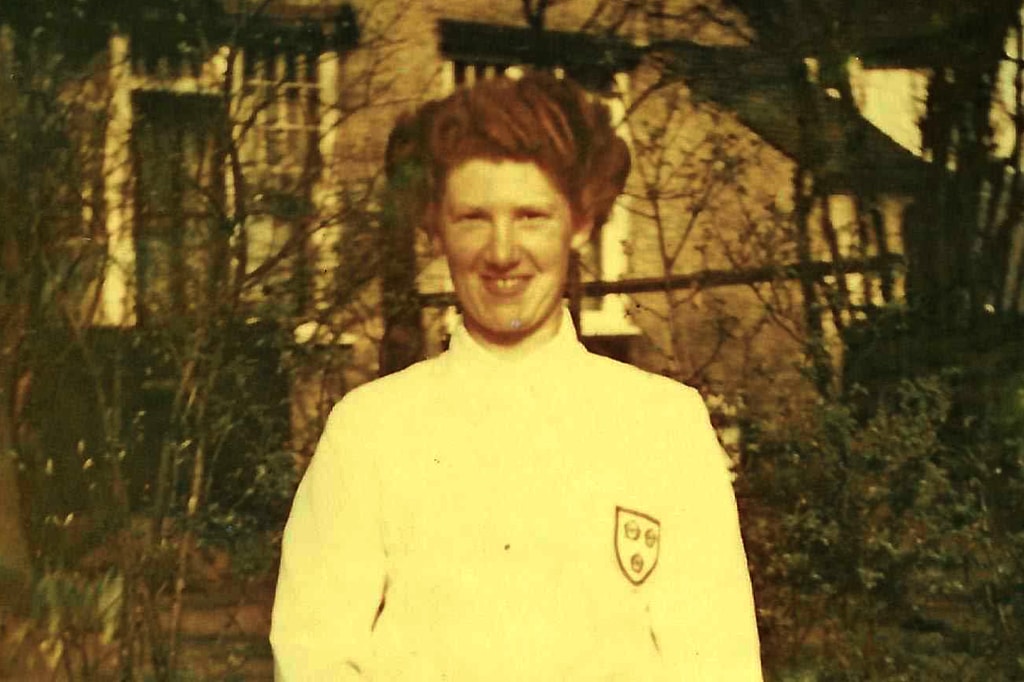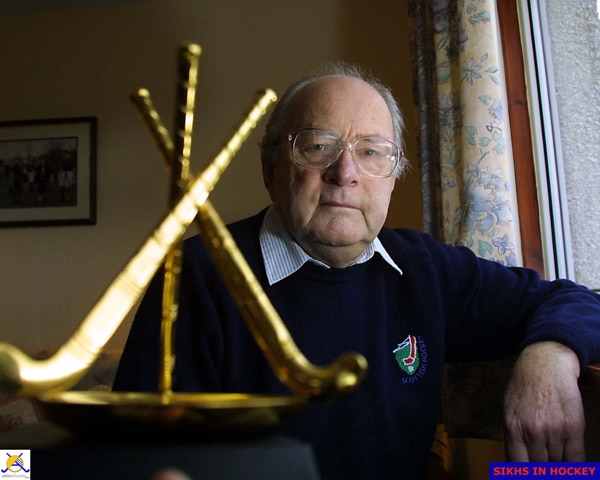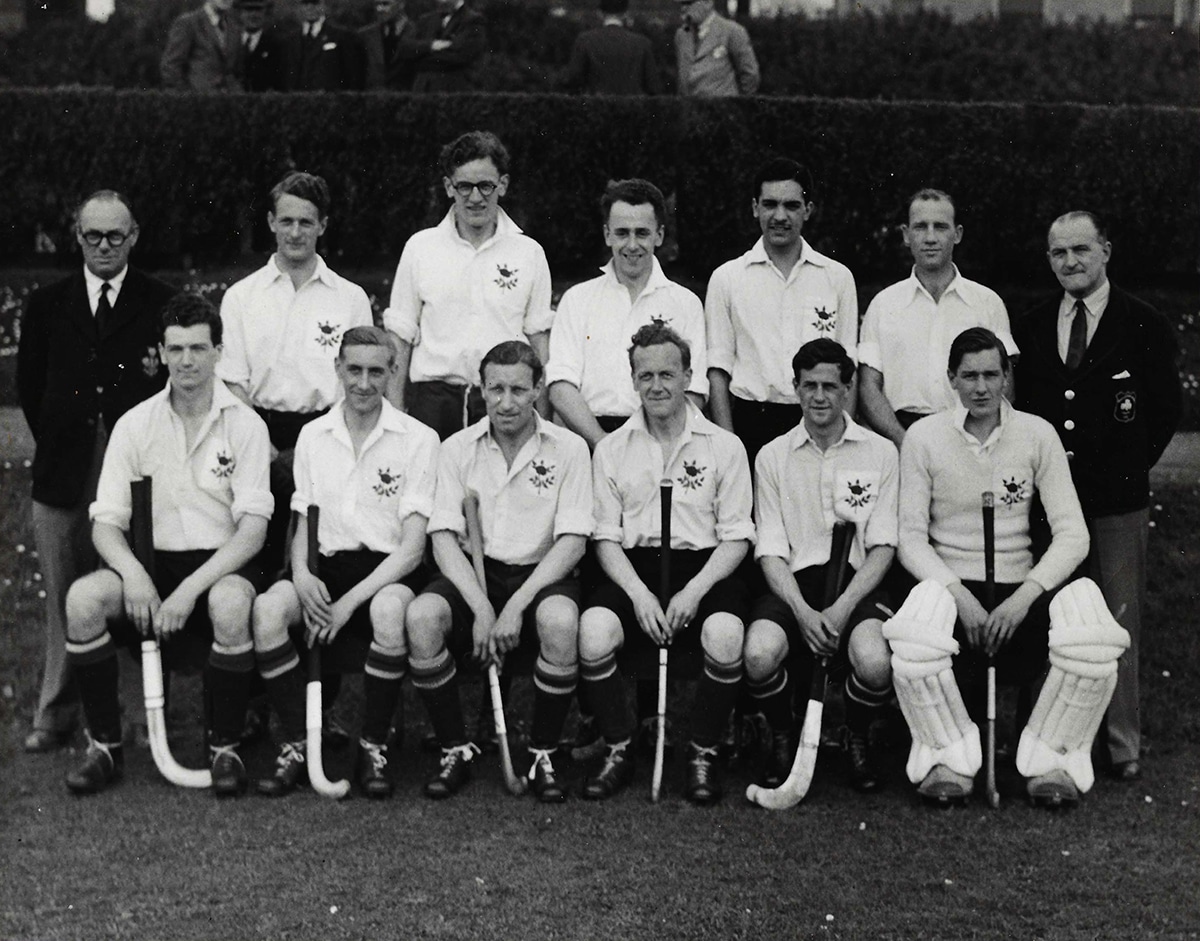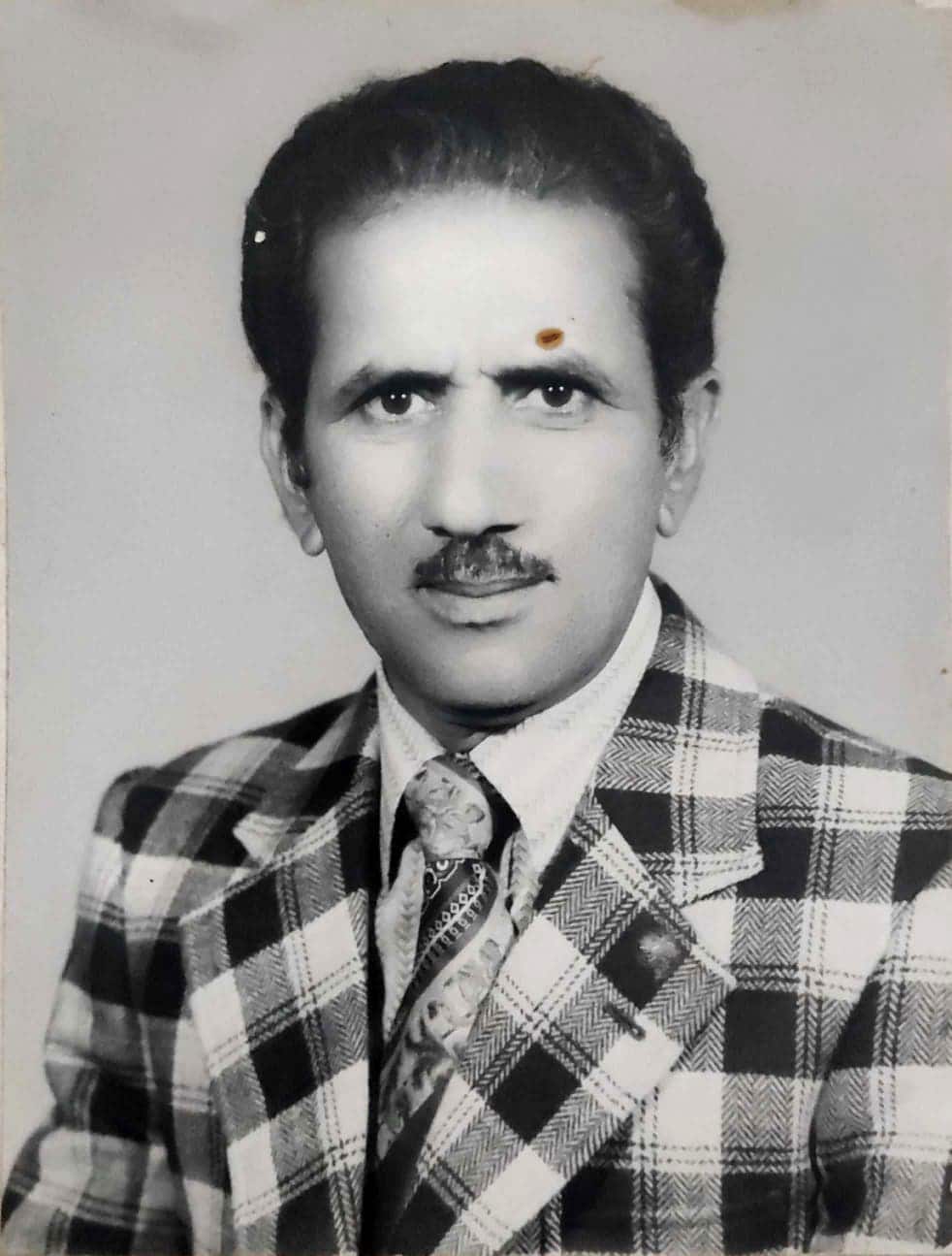 |
|
Fazal-ur-Rehman. Photograph courtesy of the family. |
15.03.1941 – 09.03.2023
Renowned for his artful stick work and soft wrists in controlling the hockey ball, Pakistani player Fazal-ur-Rehman has died at the age of 81, after a long illness. He was in the Pakistani team that won a gold medal at the 1968 Olympic Games in Mexico. Two years later he won a gold medal at the Asian Games in Bangkok. In 1971, he represented Pakistan in the first World Cup, held in Barcelona, when they won the gold medal. He went on to take part in the 1972 Olympic Games, where he won a silver medal.
Fazal, or Lala as he would later be known, was a very effective left half and retained a reputation as a defender who was hard to beat. He was also reliable with the conversion of penalty strokes at critical points. His hockey prowess was such that in 1971, he was awarded Pride of Performance, the highest civil award made by the Government of Pakistan, in recognition of his contributions to Pakistani hockey. The award is made to Pakistani citizens to record distinguished merit in the fields of literature, arts, sports, medicine, or science for civilians. In that year there were four awards to hockey players, including Tanvir Dar (and one to Zaheer Abbas, the renowned cricketer). By contrast, only one similar award was made in 1972 and 1973 and none between 1974 and 1977.
Surjit Singh Rihal, the former Kenya hockey captain, who played in the 1970 test match series against Pakistan said that “Fazal played for Pakistan at the time when the team had played together for a few years and had a good understanding of each other’s game. I had seen him playing in a few tournaments and then had the opportunity to play against him in 1970 in Nairobi. He was a skilful and crafty left half, who had a good control of the ball. He played with aggression and gave the opponents’ forwards a tough time but was friendly off the field.”
Early hockey
Fazal-ur-Rehman was born on 15 March 1941 in Abbottabad, the capital city of the Abbottabad District in the Hazara region of eastern Khyber Pakhtunkhwa, some 75 miles north of Rawalpindi and 95 miles to the east of Peshawar.
He attended school at the Government Islamia High School in Abbottabad. Little is known publicly of his early days but he played hockey for his school team. On leaving school he joined Mardan Sugar Mills and played hockey for their team. Mardan Sugar Mills had opened in 1949 and was commissioned as the largest sugar refinery in the Indian subcontinent, initially handling cane sugar but later adding capacity for sugar beet.
He later improved and developed his hockey skills as a left-half on joining Osmania Hockey Club in Abbottabad.
Representing Pakistan
In April 1965, at the age of 24, Fazal-ur-Rehman was selected for the Pakistan national side that toured Indonesia. In Jakarta, Pakistan faced Malaysia in two games and were defeated 0-8 in both of them. He made his international debut in the first of these matches.
In August the national team travelled to Kenya for seven games. The first three, on 22 and 29 August (in City Park, Nairobi) and 8 September (in Kisumu) were goalless draws. The fourth ended in defeat 1-2 on a murrum (gravel) pitch in Nairobi. The fifth was played on turf in Mombasa and Pakistan won 1-0. On 25 September 1965, the sixth game ended in a 1-1 draw in Nairobi. The final game was played in Kampala when Pakistan faced Uganda, who defeated them 3-1. There were reports of an additional game against Zanzibar but no further details have been unearthed.
He was also a regular part of domestic hockey from 1966 to 1975, playing for the Pakistan International Airline team. The national carrier celebrated sports and the spirit of sportsmanship by extending generous sponsorships. PIA had created a division solely dedicated to sports in 1958. Its interest in hockey was encouraged by Air Chief Marshal Nur Khan, who was PIA’s chairman from 1959 to 1965 and recognised as responsible for putting the airline on a proper and respected footing. He later became President of the Pakistan Hockey Federation in 1967 for two years and then again from 1976 until 1984. His initiative led to the establishment of the Champions Trophy and World Cup tournaments for hockey.
In 1966, Fazal-ur-Rehman was selected for Pakistan team to play in the Hamburg 12 Nations hockey tournament. Pakistan faced West Germany on 14 May 1966 and lost 0-3. They followed this with 1-0 victories against Belgium on 25 May 1966 and Switzerland on the next day. On 28 May 1966, Pakistan drew 1-1, first with Poland and then India, before beating Great Britain 3-0 on 21 May 1966. On the next day, Pakistan were defeated by the Netherlands 2-1. They finished the tournament in fifth place, behind India, the Netherlands, West Germany and Belgium.
This was followed by a series of four matches at home to West Germany in which they were unbeaten: a 2-0 win in Lahore on 25 September 1966, a 1-0 win on 28 September 1966 in Rawalpindi, 3-1 in Peshawar on 30 September 1966 and finally a goalless draw in Karachi on 4 October 1966.
Another tour to Kenya followed in November 1966, when Pakistan beat Kenya 1-0 in the first game and then drew 1-1. Kenya won the third 1-0 on 12 November, which result Pakistan reversed on the following day, winning again by the same margin on 19 November. The series ended in a 1-1 draw.
During the same season, he played in the Asian Games in Bangkok. Pakistan drew 0-0 with Japan at the Thephasadin Stadium on 12 December 1966 and followed that with a 5-0 defeat of Hong Kong and a 13-0 win against Thailand, they beat Malaysia 5-1 in the semi-final before playing India in the final on 19 December 1966, which India won 0-1. Soon after these Games, Fazal-ur-Rehman was omitted from the Pakistan team and was not selected for the home series against Netherlands and Australia.
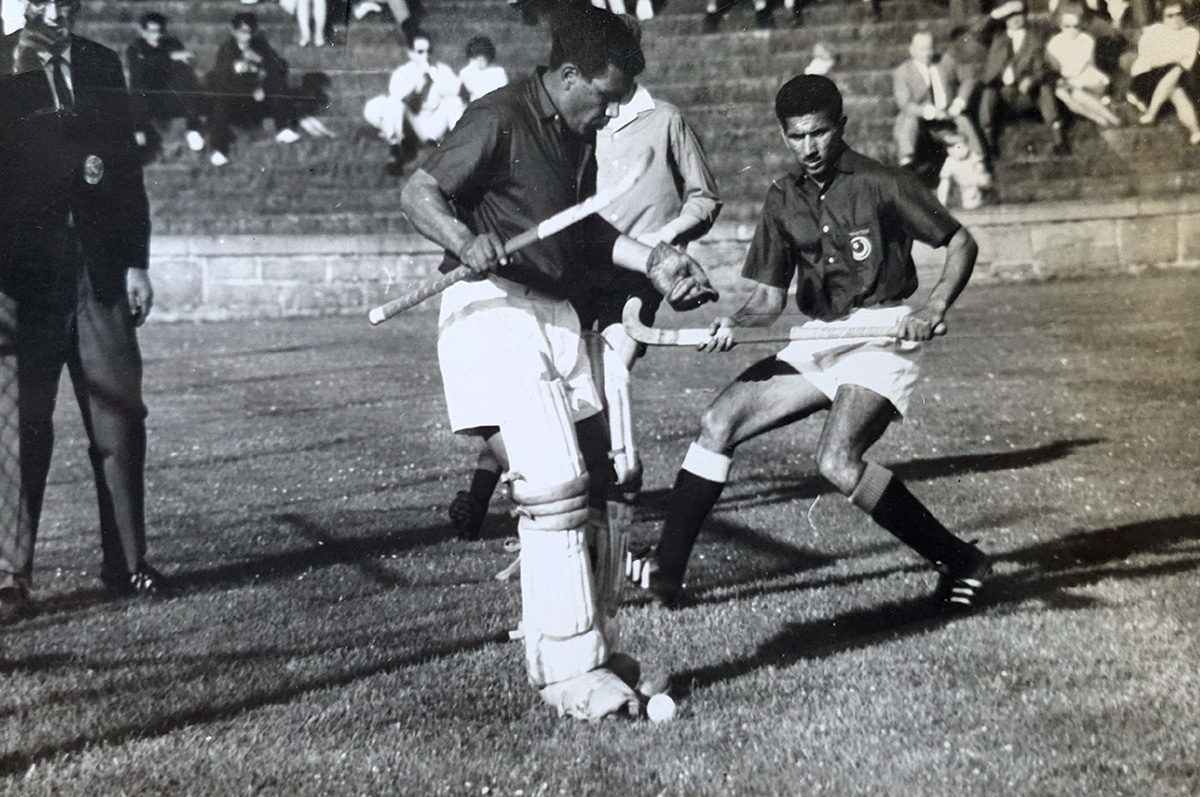 |
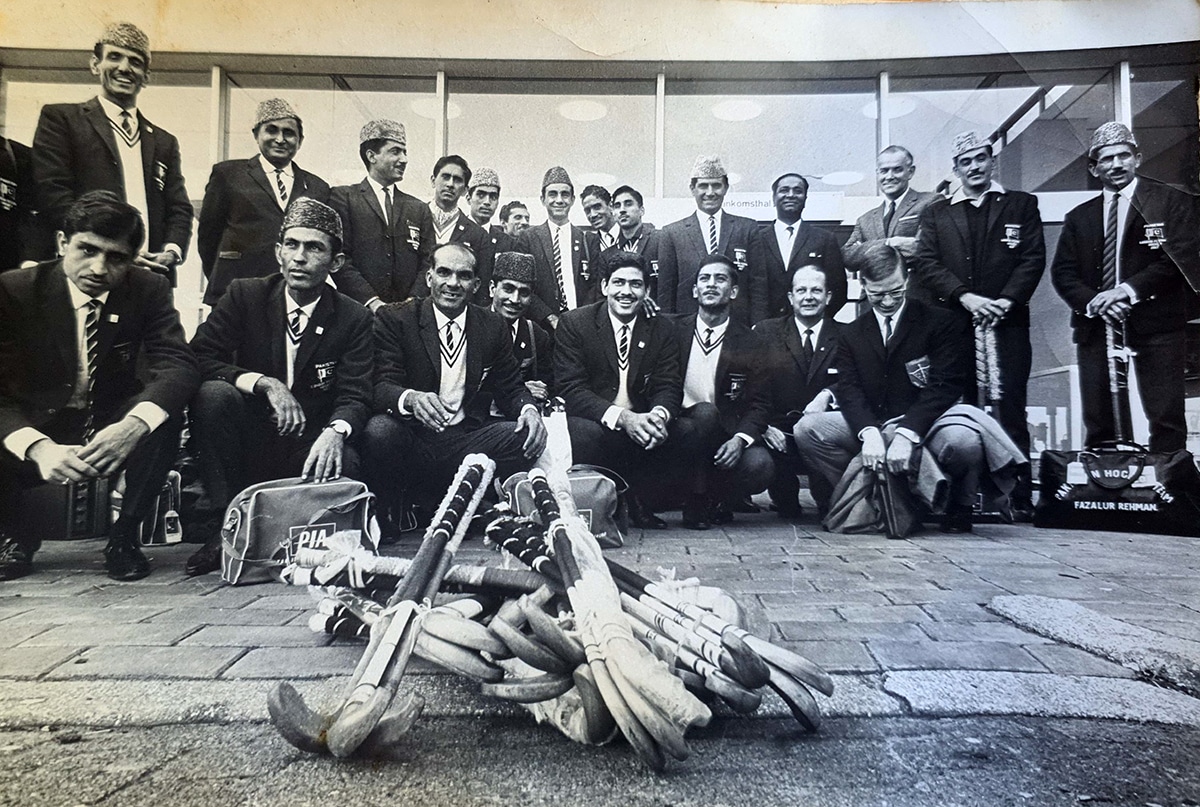 |
|
Top: Fazal-ur-Rehman (to the right of the goalkeeper) in action during the 1967 Pre-Olympic Tournament in London. Bottom: The Pakistan team and their liaison officers upon arrival for the 1967 Tournament in London. Photographs courtesy of the family of Fazal-ur-Rehman. |
He was recalled for the Pre-Olympic Tournament in London in 1967. At the Oval Cricket Ground in Kennington, Pakistan beat Belgium 2-0 on 18 October 1967 and followed it with 1-0 victories over the Netherlands and India. They followed the London tournament with a trip to the Netherlands where they played out a 2-2 draw with the Netherlands in Amstelveen at the Wagener Stadium on 29 October 1967. Fazal-ur-Rehman equalised for Pakistan in the 63rd minute.
Pakistan hosted a Pre-Olympic Festival in Lahore from 20 January until 28 January 1968 but Fazal-ur-Rehman was injured and unable to play. Pakistan faced six opponents, Spain, Ceylon (modern-day Sri Lanka) Singapore, Malaysia, West Germany and Kenya. They were undefeated and were only held to a draw by Kenya in the final game. He remained injured for a home series against Kenya that began on 31 January 1968.
After regaining fitness, he was picked for in Pakistan team for an international hockey festival in Nairobi and in test matches against Uganda later in the season. He was then dropped, in preference to Gulrez Akhtar, for the series of three test matches against Japan in Lahore, Rawalpindi and Karachi in early July, all of which resulted in wins for Pakistan.
However, he regained the selectors’ confidence and was included on the Pakistan team for the Olympic Games in Mexico City in October 1968. In their pool games Pakistan defeated the Netherlands 6-0, France 1-0, Australia 3-2, Argentina 5-0, Great Britain 2-1, Kenya 2-1 and Malaysia 4-0. That gave them a place in the semi-finals, where they faced West Germany and defeated them 1-0, with a goal from Hahmood in the 16th minute. In the final on 26 October 1968, they beat Australia 2-1 to take the Olympic gold medal.
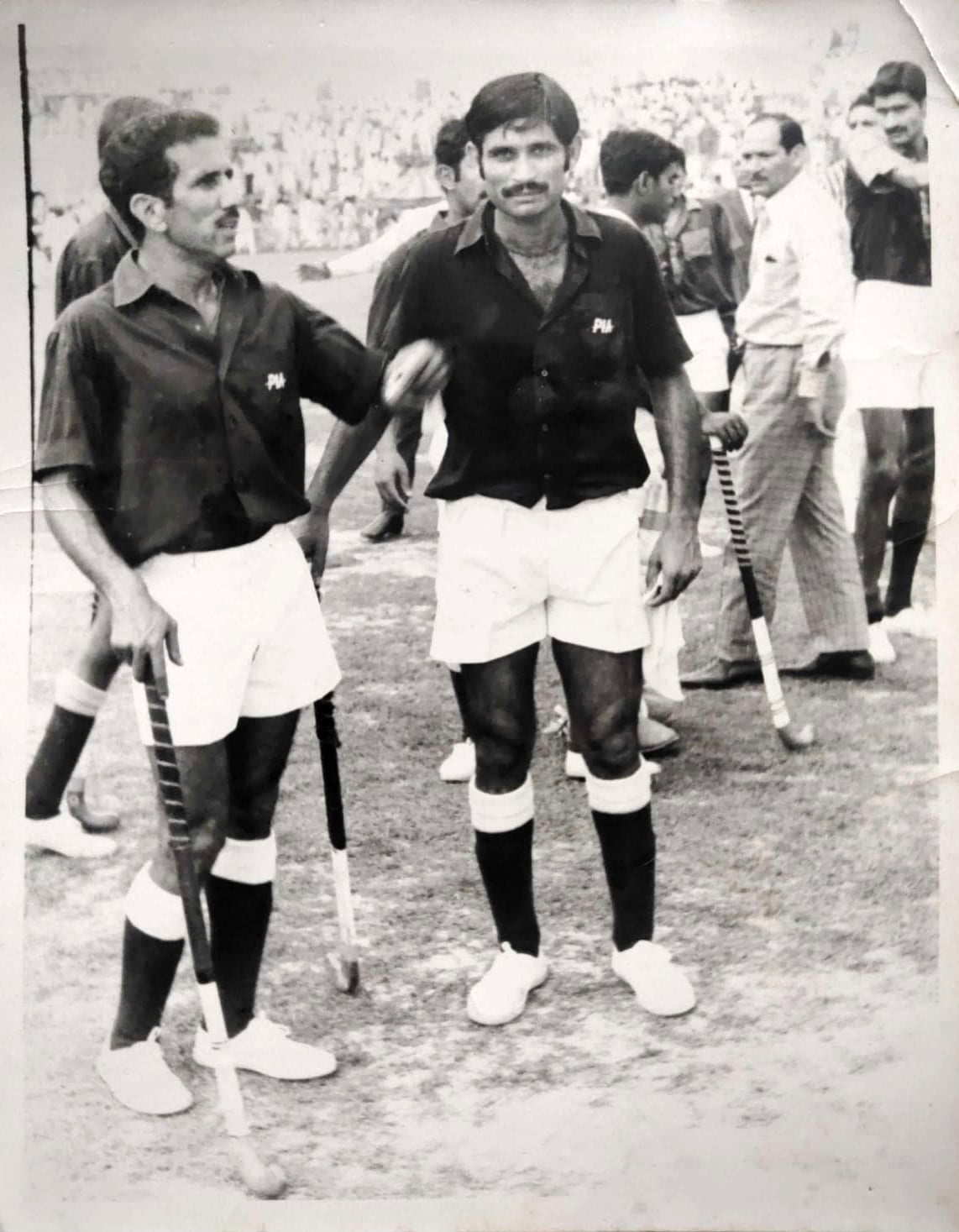 |
|
Fazal-ur-Rehman (left), possibly taken in Kenya in 1970. Photograph courtesy of the family of Fazal-ur-Rehman. |
In September 1969, Fazal-ur-Rehman travelled to Europe with the Pakistan team for matches against West Germany, drawing 2-2 in Munich on 7 September 1969, defeating the Netherlands 1-0 in Amstelveen, England 1-0 at Edgbaston in Birmingham and then being held 0-0 by France in Paris. The final two matches were in Barcelona and Terrassa, where they defeated Spain 2-1 on 29 September 1969 and 3-1 on 1 October 1969. Back home in late December 1969, two games were played against Argentina, with wins of 5-0 and 9-1 in Lahore.
In 1970, Fazal-ur-Rehman again accompanied the Pakistan team to tour Kenya to play three matches, each at the City Park Stadium in Nairobi. On 23 August 1970, Pakistan won 3-0 but then lost 0-1 in the second on 28 August 1970. The third match, held a day later, had to be abandoned after 51 minutes when Pakistan were leading 1-0. There was fighting between the players and some of the crowd invaded the pitch.
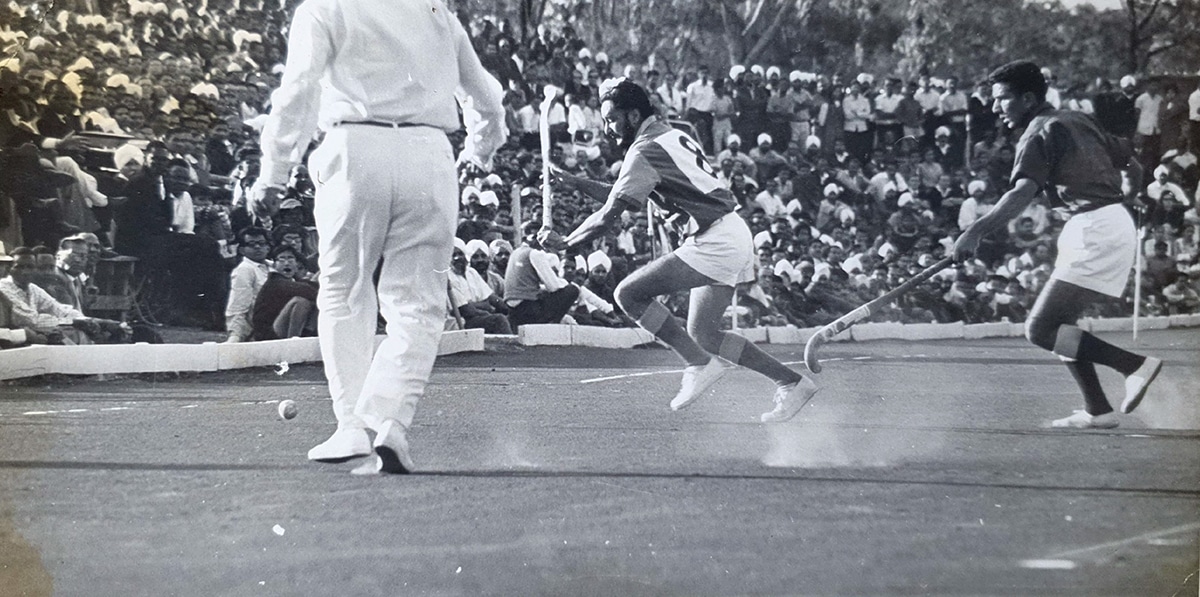 |
|
Fazal-ur-Rehman in action (right) against Jagjit Singh Kular at City Park Stadium, Nairobi, 1970. Photograph courtesy of the family of Fazal-ur-Rehman. |
The 1970 Asian Games hockey tournament was held in Bangkok from 10 December until 19 December. South Korea and Indonesia withdrew and Ceylon were moved to balance the teams in each grouping. Pakistan defeated Japan 3-0, Hong Kong 10-0 before drawing 0-0 with Thailand. In the semi-finals, they beat Malaysia 5-0 and defeated rivals India in the final for the gold medal. The winning goal was scored in the 98th minute after a first period of extra time had failed to separate the sides.
In 1971, he was again part of the Pakistan team which participated in the inaugural edition of the Hockey Men’s World Cup in Barcelona. There was no qualification for entry. The top ten teams from five continents were invited by the International Hockey Federation (FIH) on merit based upon performances in the Olympic Games. The teams were divided into two groups of five, with the top two proceeding to the semi-finals after the round-robin stage. In its four preliminary matches, Pakistan suffered a defeat 2-3 to Spain on 18 October 1971, drew 3-3 with the Netherlands but won 5-2 against Australia and 1-0 against Japan.
In the semi-finals, they faced India once again and came out on top 2-1, coming from behind. The final was played on 24 October 1971 and Pakistan defeated Spain by a solitary goal scored by Akhtar-ul-Islam in the 26th minute to win the first men’s World Cup and the gold medal. The next day, the journalists covering the competition selected a World XI. It included three Pakistanis, left-half Fazal-ur-Rehman, inside left Asad Malik and left winger Shahnaz Sheikh.
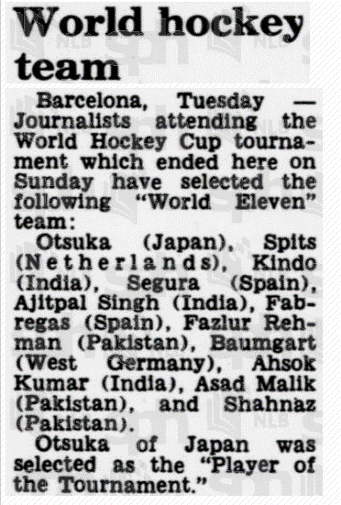
In 1972 Pakistan undertook a short tour of the Netherlands and Poland, winning three and losing once. It was then on to the Olympic Games in Munich. Fazal-ur-Rehman was selected for Pakistan. In two pools of eight teams, the top two were rewarded with a place in the semi-finals. Pakistan defeated France 3-0 in their first game on 27 August 1972 and on the next day drew 1-1 with Spain. They next faced Uganda and won 3-1.
Their next game was against West Germany who scored in the 57th minute to win 2-1. It was a physical match and generated considerable disagreement and argument. The Times commented that the game was “marred by ugly incidents… Early in it seemed that Pakistan stick obstruction and German body checking could lead to a bad clash.” Germany’s Peters and Rashid of Pakistan slashed at each other with their sticks and were given yellow cards. “The whole of the first half saw little of the hockey both sides can play and too many fouls.” Pakistan did their cause and temperament little good failing to convert two penalty strokes in the first half awarded for stops with the foot on the line.
Two days later they beat Malaysia 3-0 and Belgium 3-1 on the following day. That put them second in the group two points adrift of West Germany who were undefeated. Each had scored 17 goals but Pakistan had conceded one more.
In the semi-finals, Pakistan faced India and won 2-0. Pakistan moved the ball wide and across the pitch while India relied on sudden individual breaks by Harbinger and Ashok. Following the two missed penalty strokes against West Germany, ur-Rehman took over penalty stroke duties for Pakistan, awarded when Zaman’s shot was stopped on the line by an Indian foot. He converted in the eleventh minute for the lead. The final was held on 10 September 1972 against West Germany. Much of the tension in the earlier group match remained. The Germans’ man-to-man marking, with Krause described as shoulder to shoulder with Rashid throughout, led first to obstruction, then stick tapping and then scything tackles.
At the start Baumgart missed a simple chance from eight yards for Germany. Zaman of Pakistan deflected Germany’s first short corner shot hard by Krause off the line. Rehman, described by The Times correspondent as “a cool hand if ever there was one” twice cut out the final pass deep in the circle before a Malik breakaway and pass to Rashid, whose weak shot was saved. Following up, Malik shot wide. It was said to have been a “terrible miss and Pakistan were never to come so close to scoring again.”
West Germany won 1-0 with a goal from Krause in the 60th minute. It was the first Olympic title for a European side since 1920. The victory was marred by the behaviour of Pakistani players, fans and some officials. In the last ten minutes the umpires, Richard Jewell of Australia and Horacio Servetto of Argentina had to stop play twice, to allow for encroaching Pakistani fans to be removed from the pitch. Pakistan’s players and officials repeatedly remonstrated with the umpires.
At the end of the match, Pakistani fans and officials invaded the pitch and assaulted West German police and stadium security. A bucket of water was poured over the head of the FIH President René Frank. At the medal ceremony, the Pakistani players refused to wear their silver medals. Later, the eleven Pakistani players were banned for life from their national team. This led to a high-level apology, following which the ban was reduced to two years (and eight played in the next Olympic Games). The game itself was described by Brian Lewis of The Times as a poor end to a magnificent tournament.
The FIH had proposed to hold a match between the Olympic champions and a Rest of the World XI in Berlin on Sunday after the final. Its officials had requested that the Olympic hockey programme be concentrated to have the final played on a Saturday. This was not accepted by the International Olympic Committee (IOC) and led to the cancellation of the representative match, for which Fazal-ur-Rehman had been nominated for selection for the Rest of the World team.
The final was therefore Rehman’s last appearance in international hockey. He had collected four gold medals and three silver medals in an international hockey career from 1965 until 1972 After retiring from active hockey, he established the Fazal Hockey Club and coached youngsters until his death.
His sons Inam and Shujah played junior hockey for Pakistan. Inam represented Pakistan in the Junior Asia Cup in Kuala Lumpur in 2000 and Fazal’s nephew Naeem Akhtar also played international hockey for Pakistan and won a gold medal at the 1984 Olympic Games in Los Angeles.


